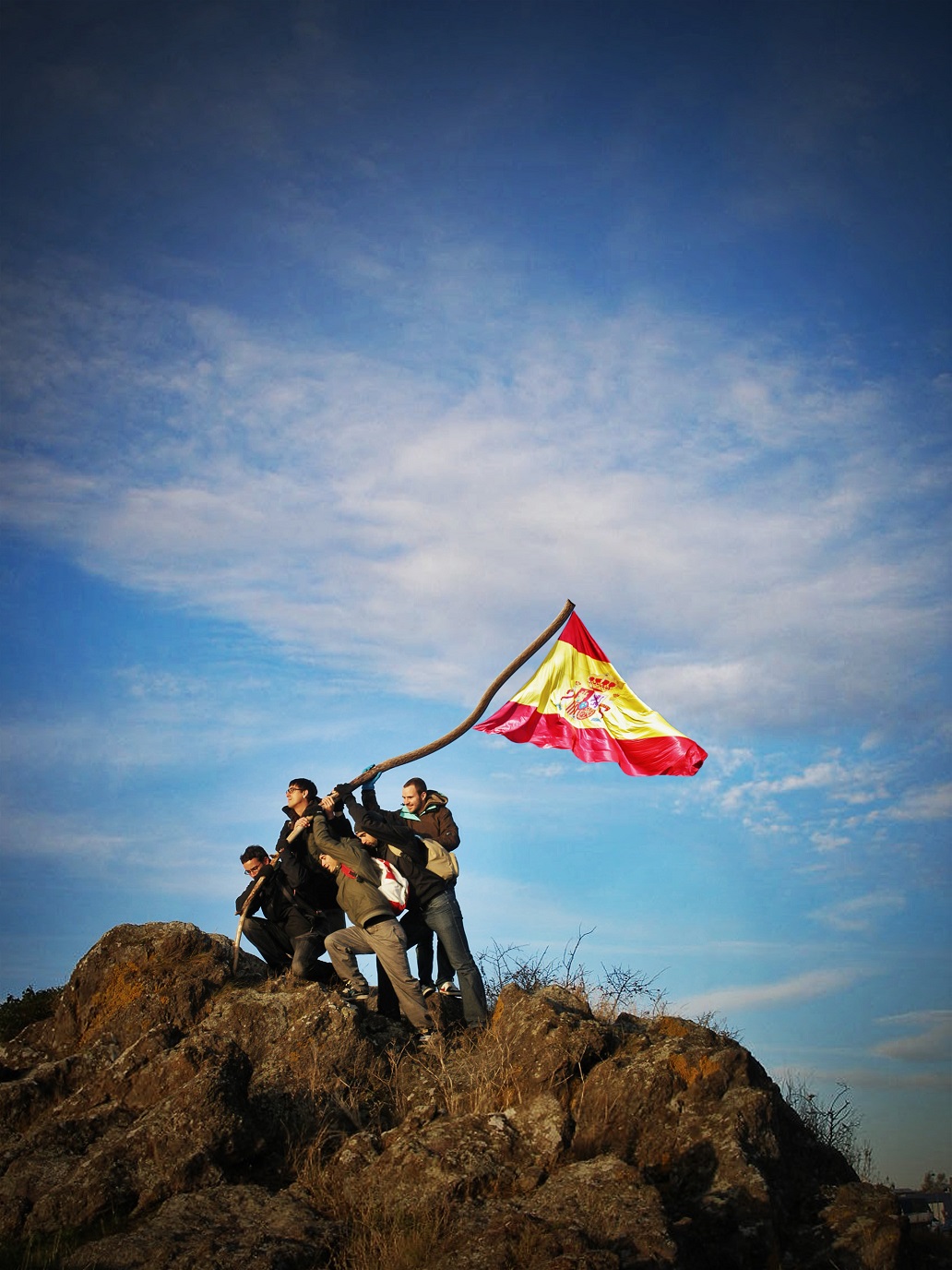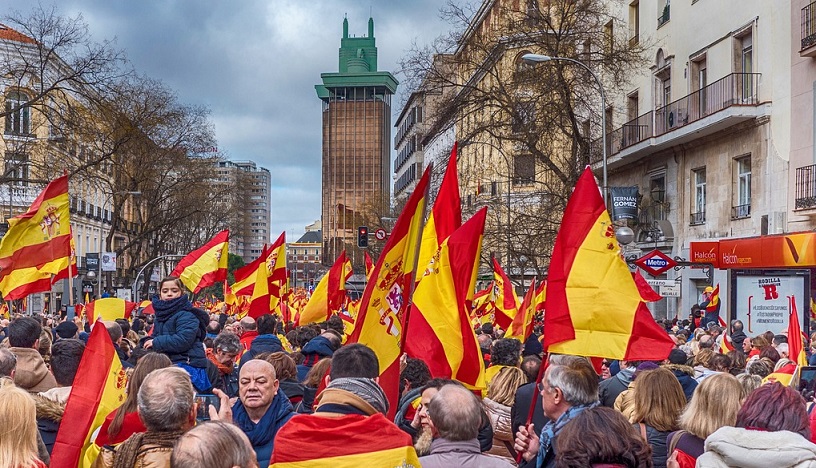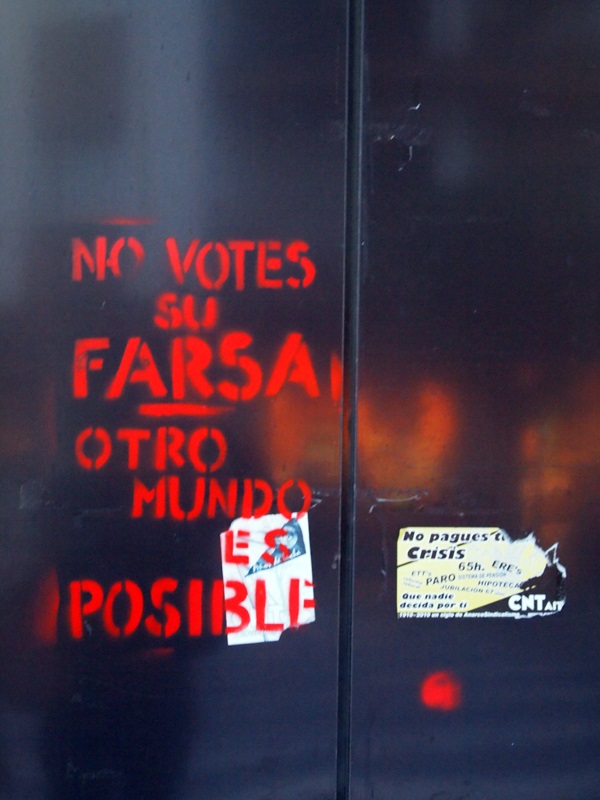Since the General Elections of July 13, the very close result between the right-wing and left-wing coalitions caused a 180-degree turn in the political landscape and, possibly, in its own historical trajectory, built after the death of the dictator Franco, by establishing Democracy and the approval of the Constitution of 1978.

Miguel Angel Ferrís
The same Socialist Party that agreed the transition from Francoism to a parliamentary monarchy without purifying the institutions of the State and that has maintained for almost 45 years a new bipartisan regime by common agreement with the Popular Party – PP (conservative Catholics), is letting go of its commitments.
It is doing so to ensure its continuity in government and to prevent the ultra-right from winning. To this end, it broke its commitments with the PP and with important national economic lobbies and agreed on a Coalition, in which the entire so-called “democratic majority of the country” would participate.
Political polarisation and lawfare
The turn – supported by the renewal of the Progress Pact with the Sumar Coalition and the stable support of the nationalists and pro-independence parties in Catalonia and the Basque Country – highlights the alliance between the right and the far right (Vox), which already governs in different regions.
Potential approval of an “amnesty law” in Parliament, which aims to reconcile the pro-sovereignty parties with the Spanish state and build bridges for a shared future, has brought violent and ultra-Catholic groups to the headquarters of the Socialist Party and the Institutions.
On the other hand, as any Lawfare handbook will tell you, the judiciary has sought to obstruct the decision of the executive and legislative powers, while the “media infantry” keeps its focus on street protests and hate speech rather than on parliamentary debates and political and constitutional arguments.
 Finally, nostalgic sectors of the army, both active and reserve, have called on the army to revolt against the government, which could be the subject of an official investigation.
Finally, nostalgic sectors of the army, both active and reserve, have called on the army to revolt against the government, which could be the subject of an official investigation.
The left and the new progressive government
The rise of the new electoral platform called Sumar, now converted into a parliamentary group, has negotiated with the PSOE to form a government without the presence of Podemos, the party that emerged from the 15M movement, which took up the indignation in the streets and squares of the country after the crisis and the protests against ‘austericide’ and political corruption in 2011.
A long-term strategy of media and judicial persecution against Sumar – including espionage from the state sewers – and the exclusionary and delegitimising attitude of Sumar’s leader, Yolanda Díaz, have led to the definitive break-away of the main political actor of the left in the previous government, from the pluralist alliance of the left.

Almost all political groups have had to relocate into their own electoral arena and into new alliance blocs. This has been especially the case in the current scenario of threats of governmental instability from the extreme right, and the upcoming elections in the historical nationalities with different languages and cultures, i.e. Galicia, Euskadi and Catalonia.
Credibility of the new Coalition of left-wing parties (accused of playing into the hands of the PSOE’s moderate policies), the attitude of ongoing confrontation on the part of the Podemos leadership and the game of balances that together sustain the agreement of the left and centre-right nationalist groups with the government, are the factors to be taken into account. This is because they could decide the continuity of the new Spanish government that has been inaugurated in the midst of the temporary presidency of the European Union and the biggest right-wing protests in a decade.
Challenges and the rise of authoritarianism in Europe
The latest statements by Pedro Sánchez, both Spanish president and secretary general of the Socialist International, condemning Israel’s bombings and the unpunished killings of civilians in Palestine, marked a major shift in international policy. Perhaps he has done so with the aim of reinforcing the image of his alliance with the left-wing parties included in Sumar and, in the process, erasing the grievances of its unexplained change of position on the Sahara conflict in favour of Morocco.
With an Interior Minister, the conservative judge Marlaska, politically responsible for the massacre of dozens of immigrants at the fence separating Melilla from Morocco and for the policy of ‘hot returns’ contrary to European legislation, the signing of the European Pact on Migration and Asylum (PEMA) will increase tensions in the progressive Coalition.
 This will be debated between the growing mobilisations of anti-racist movements and pro-legalisation of undocumented immigrants (more than half a million in Spain) and a likely scenario of a predominance of the securitarian and xenophobic narrative in the media in the long pre-campaign for the European elections to be held in June 2024.
This will be debated between the growing mobilisations of anti-racist movements and pro-legalisation of undocumented immigrants (more than half a million in Spain) and a likely scenario of a predominance of the securitarian and xenophobic narrative in the media in the long pre-campaign for the European elections to be held in June 2024.
No one knows what might happen in Spain in such a changing political and international context, although the new government can take a breath of fresh air due to the good data on economic growth and unemployment reduction reported by international analysts. Ideological accords with the left and long-standing pacts with nationalists and sovereigntists could consolidate a state that, beyond the system of decentralised autonomous territories, in practice takes the form of a pluri-national state with a monarchy that is a vestige of the past but a taboo for the right-wingers.
(Translated by Rene Phelvin – Email: renephelvin@gmail.com) – Photos: Pixabay












.jpg)












